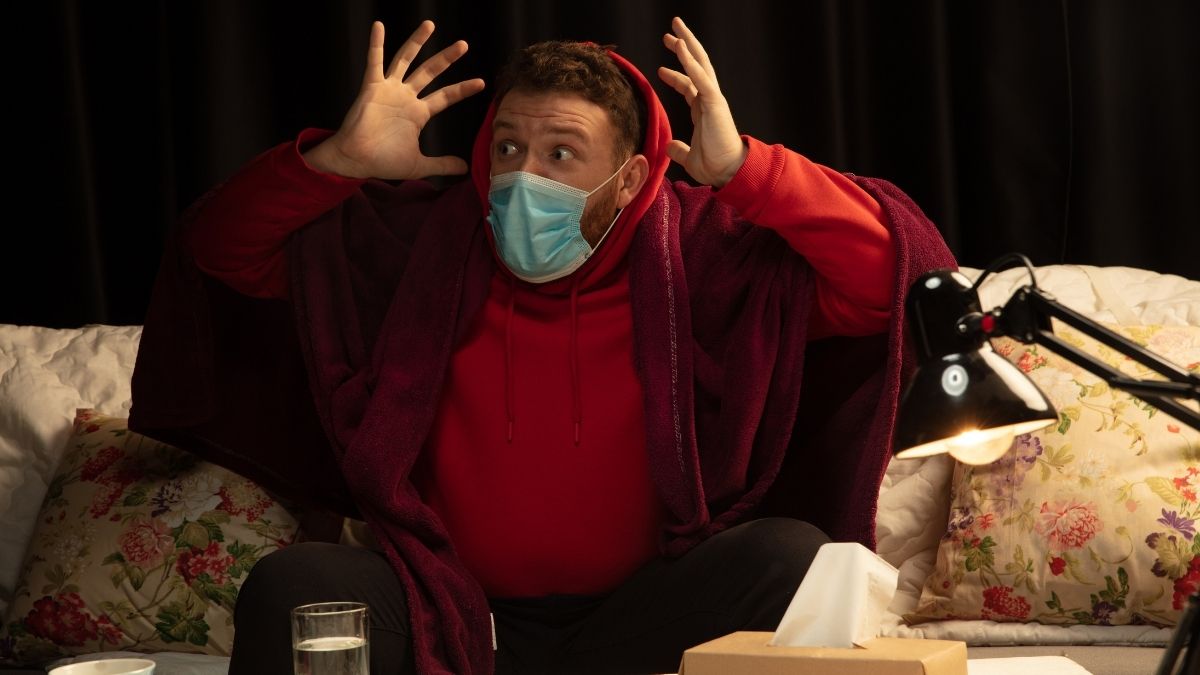Every 60 seconds, three more men die than women in America – a gap that’s been widening for decades.
This isn’t just a statistic. It’s a crisis. Men die earlier than women in almost every country on Earth. The gap ranges from 5 to 7 years globally. In some places, it’s even worse.
Your grandfather probably died before your grandmother. Your father might follow the same pattern. And you’re likely heading down the same path unless something changes.
Here’s what makes this tragedy worse: most of these early deaths are preventable. Heart disease, cancer, accidents, suicide – the biggest killers of men – often stem from choices, not genetics.
Male life expectancy doesn’t have to be shorter. The problem isn’t your DNA. It’s your daily habits. Seven specific behaviors are stealing years from your life right now.
But here’s the good news. You can change these patterns. This isn’t about becoming a health fanatic or giving up everything you enjoy. It’s about making smart adjustments to men’s health habits that actually matter.
In this article, you’ll discover the seven most dangerous habits killing men early. More importantly, you’ll get a clear 30-day action plan to start adding years to your life today.
Your family needs you around longer. Let’s make that happen.
The Shocking Truth About Male Life Expectancy

Men die earlier than women almost everywhere on Earth. This isn’t just bad luck. It’s a crisis that’s getting worse.
The numbers don’t lie. In the US, men live 76.1 years while women live 81.1 years. That’s a 5-year gap. Japan has the longest lifespans globally, but men still die 6 years earlier than women. Russia shows the worst gap – over 10 years.
Why does this happen? You might think it’s biology. Wrong. Research shows 80% of this gap comes from behavior, not genes. Men take more risks. They ignore health problems longer. They’re less likely to see doctors. They work dangerous jobs more often.
This costs everyone. When men die earlier, families lose income. Kids grow up without dads. Healthcare systems spend billions on preventable diseases. The economy loses productive workers.
Here’s what’s scary: health disparities are getting worse in rich countries. Men in developed nations are falling further behind women in life expectancy. Heart disease kills men at higher rates. Suicide rates are climbing. Drug overdoses hit men harder.
The biggest killers? Heart disease, cancer, and accidents. Most of these deaths could be prevented. Men just need to change how they think about health.
You can beat these odds. Get regular checkups. Don’t ignore chest pain or weird symptoms. Eat better. Exercise. Stop smoking. Limit alcohol. Wear your seatbelt.
The gap between male life expectancy and female life expectancy isn’t set in stone. Countries like Iceland have narrowed it significantly. But it takes work. It takes men caring about their health before problems start.
Your life matters. Your family needs you around. The data is clear – men die earlier because of choices, not fate. Make better choices starting today.
Habit #1: The Silent Stress Epidemic

Your chest feels tight. Your jaw clenches during meetings. You can’t sleep because work thoughts won’t stop. Sound familiar? You’re not alone, and you’re not weak.
Men handle stress differently than women. Women talk about their problems. Men bottle them up. This isn’t just personality – it’s how we’re taught to be “strong.” But this silent approach is killing us. Literally.
Here’s the scary truth: Men are twice as likely to die from stress-related heart attacks. Your body wasn’t built to carry that weight alone.
Work stress hits men hardest. About 75% of men report work as their main stress source. The pressure to provide, to be the breadwinner, never stops. You feel responsible for everyone’s security. That weight sits on your shoulders 24/7.
But stress doesn’t stay in your head. It attacks your body. Your blood pressure shoots up. Your heart works overtime. Stress hormones flood your system daily. Over time, this causes heart disease, strokes, and early death.
Why don’t men get help? The masculinity trap. Real men don’t need therapy. Real men handle their own problems. Real men don’t show weakness. These beliefs are toxic. They’re also wrong.
Your male stress response is different, so your solutions should be too. Women might prefer talking. You might need action-based stress management for men.
Here’s what works for busy guys:
Physical release. Hit the gym. Go for a run. Lift weights. Your body needs to burn off stress hormones. Even 10 minutes helps.
The 4-7-8 breath. Breathe in for 4 counts, hold for 7, out for 8. Do this 3 times when stress hits. It works fast.
Set boundaries at work. Stop checking emails after 8 PM. Take your lunch break. Use your vacation days. Your job won’t disappear if you rest.
Find one person to talk to. A friend, brother, or therapist. You don’t need to share everything. Start small.
Exercise your “no” muscle. You can’t do everything for everyone. Pick what matters most.
Sleep comes first. Stress gets worse when you’re tired. Aim for 7 hours minimum.
The silent stress epidemic is real. But it’s not permanent. Small changes in how you handle pressure can add years to your life. Your family needs you healthy, not heroic.
Start with one technique today. Your future self will thank you.
Habit #2: The Healthcare Avoidance Trap

When was your last checkup? If you can’t remember, you’re part of a dangerous trend. Men avoid doctors like they’re asking for directions.
The numbers are alarming. Men are 24% less likely to visit a doctor in the past year compared to women. Even worse? About 60% of men skip recommended screenings. These aren’t optional suggestions – they’re life savers.
Why do we do this? The “I’ll tough it out” mentality runs deep. You think real men handle pain. Real men don’t need help. Real men fix themselves. This thinking is literally killing you.
Here’s what happens when you avoid men’s preventive healthcare: Small problems become big ones. High blood pressure goes unnoticed until you have a heart attack. Diabetes develops silently for years. Cancer grows while you ignore symptoms.
The most preventable conditions that kill men early? Heart disease, diabetes, high blood pressure, and certain cancers. All of these can be caught early with simple tests. All of these are treatable when found soon enough.
But medical anxiety is real. Maybe you hate needles. Maybe you’re scared of bad news. Maybe you don’t trust doctors. These fears make sense. They also don’t excuse skipping male health screening.
Here’s how to beat the healthcare avoidance trap:
Start small. Book just one appointment. A basic physical. That’s it. Don’t overwhelm yourself with a full medical makeover.
Find a doctor you like. If your current doctor makes you uncomfortable, switch. You need someone who listens and explains things clearly.
Bring a list. Write down your concerns before the visit. This prevents you from forgetting important stuff when you’re nervous.
Schedule regular checkups. Put them in your calendar like important work meetings. Treat your health like a business appointment.
Get the basic tests. Blood pressure, cholesterol, blood sugar, and cancer screenings. These catch the big killers early.
Remember why you’re doing this. Your family needs you healthy. Your kids want their dad around for graduations and weddings.
Avoiding doctors doesn’t make you tough. It makes you foolish. The strongest thing you can do is take care of yourself. Your life depends on it.
Habit #3: The Substance Abuse Gender Gap

Friday night. The guys want to grab drinks. You say yes because that’s what men do. Three beers turn into six. You drive home buzzed. Again. Sound familiar?
Men have a serious substance problem. We consume twice as much alcohol as women. Male smoking rates are 5% higher globally. Here’s the worst stat: 70% of overdose deaths are men. We’re literally drinking and drugging ourselves to death.
Why do men abuse substances more? The answer isn’t complicated. Social pressure starts early. “Real men can hold their liquor.” “Have another beer.” “Don’t be a lightweight.”
Binge drinking culture makes it worse. You’re expected to party hard after work. Business deals happen over drinks. Sports events mean beer. Every celebration involves alcohol. Say no, and people question your manhood.
Smoking follows the same pattern. Even “social smoking” – those weekend cigarettes – damages your lungs. Your heart. Your wallet. There’s no safe amount.
Prescription drugs are the hidden killer. Men get injured more at work. Doctors prescribe painkillers. You keep taking them after the pain stops. Before you know it, you’re addicted.
The damage goes beyond your body. Alcohol and male health don’t mix. Your liver fails. Your heart weakens. Your brain shrinks. Your relationships fall apart. Your kids learn that daddy needs drinks to be happy.
Here’s how to break the cycle:
Count your drinks. Most men have no idea how much they actually consume. Track it for a week. The number might shock you.
Find new social activities. Replace bar nights with gym sessions, hiking, or coffee meetups. Your real friends will join you.
Learn to say no. “I’m driving.” “I’m on medication.” “I’m cutting back.” You don’t owe anyone an explanation.
For smoking cessation for men, try replacement habits. When you want a cigarette, do pushups instead. Chew gum. Take deep breaths.
Get professional help if needed. Addiction isn’t a character flaw. It’s a medical problem with medical solutions.
Set limits that stick. Two drinks maximum. No drinking alone. No substances on weekdays. Pick rules that work for your life.
Remember your why. Your kids want a sober dad. Your wife wants a present husband. Your body wants to live past 60.
Breaking free from substances isn’t about willpower. It’s about replacing bad habits with good ones. Start small. Start today. Your future depends on it.
Habit #4: The Dangerous Weight of Social Isolation

You used to have buddies. College friends. Work friends. Guys you’d call to grab a beer. Now? Your phone sits silent. When did you become so alone?
Male loneliness is an epidemic. After 30, men’s friendships disappear. Marriage, kids, and career take over. You lose touch. You stop making plans. Before you know it, 15% of men report having no close friends at all.
This isn’t just sad – it’s deadly. Research shows loneliness kills as much as smoking 15 cigarettes daily. Your immune system weakens. Your heart struggles. Depression creeps in. Men’s suicide rate is 3.5 times higher than women’s. Connection isn’t luxury. It’s survival.
Why do men struggle with relationships? We’re taught to be independent. Self-reliant. We don’t need anyone. But humans aren’t meant to be islands. Even the strongest men need support.
Men’s mental health suffers because we don’t talk. Women share feelings easily. They build emotional bonds through conversation. Men bond through activities. We need different approaches.
Here’s how to fight male loneliness:
Start with one person. Reach out to an old friend. Send a text. “Been thinking about you. How are things?” Don’t overthink it.
Join activities you enjoy. Sports leagues. Hobby groups. Volunteer work. You’ll meet people who share your interests.
Be the one who plans. Don’t wait for invitations. Suggest meeting for coffee. Watching a game. Going to the gym together.
Show up consistently. Friendships need maintenance. Regular contact keeps relationships alive.
Go deeper than small talk. Ask about their challenges. Share yours too. Real connections happen when you drop the mask.
Get professional help when needed. Therapy isn’t weakness. It’s maintenance for your brain. Just like you’d fix a broken arm.
Balance self-reliance with connection. You can be strong AND have friends. Independence doesn’t mean isolation.
Make time for relationships. Put friend time in your calendar. Treat it like important appointments.
Loneliness kills slowly and silently. But it’s fixable. One conversation. One text. One coffee meeting. Your mental health depends on connection. Your life might too.
Don’t wait until it’s too late to reach out.
Habit #5: The Reckless Risk-Taking Pattern

You speed through yellow lights. You skip safety gear at work. You invest your savings in risky stocks. Why do men take so many dangerous chances?
The numbers are brutal. Men make up 93% of workplace deaths. We’re 77% more likely to die in car accidents. Male risk-taking behavior isn’t just about being tough – it’s killing us.
Biology plays a part. Testosterone makes you more aggressive. It also makes you overconfident. Your brain literally processes risk differently than women’s brains. You focus on potential rewards, not dangers.
Work kills men more than war. Construction, logging, fishing, trucking – men pick the dangerous jobs. The pay is often better, but the cost is your life. You tell yourself you’re careful. The statistics say otherwise.
Recreational risks add up too. Extreme sports, aggressive driving, drinking and driving. You think you’re invincible. Physics doesn’t care about your confidence.
Financial risk-taking creates hidden health problems. Gambling away savings. Risky investments. Bad business decisions. The stress from financial disasters causes heart attacks, depression, and family breakdown.
Here’s how to manage male risk-taking behavior smartly:
Wear protective gear. Every time. No shortcuts. Hard hats, seat belts, safety glasses. Your family needs you alive more than you need to feel tough.
Slow down on the road. Leave 10 minutes earlier instead of speeding. Road rage isn’t worth dying for.
Calculate real risks. Before any big decision, ask: “What’s the worst that could happen?” Plan for it.
Get occupational safety training. Learn proper procedures. Follow them even when your boss doesn’t care.
Limit financial gambles. Never risk money you can’t afford to lose. Your retirement isn’t a casino.
Listen to your gut. If something feels dangerous, it probably is. Trust that instinct.
Taking smart risks builds wealth and happiness. Taking stupid risks builds graveyards. Learn the difference. Your life depends on it.
Habit #6: The Nutrition and Fitness Neglect

Your pants are getting tight. You’re out of breath climbing stairs. Your wife suggests salad, and you order a double cheeseburger instead. When did taking care of your body become so hard?
Men have terrible nutrition habits. We consume 25% more calories than we need on average. Those “man-sized” portions aren’t helping your masculinity – they’re killing you. Bigger plates, bigger problems.
You can’t cook, so you don’t eat well. Fast food becomes your kitchen. Processed meals fill your freezer. You think cooking is women’s work, so you survive on takeout and convenience food. Your body pays the price with diabetes, heart disease, and obesity.
Exercise becomes an all-or-nothing disaster. You join a gym in January. Go hard for two weeks. Get sore and quit. Only 23% of men meet basic exercise guidelines. You either work out like a maniac or sit on the couch for months.
Men’s body image issues are real but hidden. You hate your gut but won’t admit it. You avoid mirrors. You wear baggy shirts. Women talk about their weight openly. Men suffer in silence while their health declines.
Here’s how to fix your men’s nutrition habits:
Learn five simple meals. Grilled chicken, scrambled eggs, basic pasta, stir-fry, and salad. That’s enough to survive without takeout.
Use smaller plates. Your eyes control your stomach. Smaller plate, smaller portions, same satisfaction.
Meal prep on Sundays. Cook large batches. Store in containers. Grab and go all week.
For male fitness routines, start small. Twenty minutes, three times per week. Walk, pushups, bodyweight squats. Build the habit before adding intensity.
Focus on consistency over perfection. Missing one workout won’t kill you. Missing 50 will.
Find activities you enjoy. Hate running? Try basketball. Bored with weights? Try rock climbing. Exercise shouldn’t feel like punishment.
Track your progress simply. Take photos. Weigh yourself weekly. Notice how you feel climbing stairs.
Get enough protein. Your muscles need fuel to grow and repair. Aim for your body weight in grams daily.
Your body is the only one you get. Stop treating it like a garbage disposal. Simple changes in nutrition and fitness can add decades to your life. Your family wants you around for those decades.
Start with one small change today.
Habit #7: The Sleep Sacrifice Culture

It’s 11 PM. You’re still scrolling your phone. Work emails keep coming. You tell yourself you’ll sleep when you’re dead. That day might come sooner than you think.
“Sleep is for the weak” runs deep in male culture. Real men work late. Real men push through exhaustion. Real men don’t need rest. This mentality is literally shortening your life.
The numbers prove it. Men average 6.8 hours of sleep nightly while women get 7.2 hours. Sleep-deprived men have a 15% higher mortality risk. Your body needs 7-9 hours to repair itself. Anything less is slow suicide.
Why do men sacrifice sleep? Work pressure never stops. You stay late to prove you’re dedicated. You wake up early to beat traffic. You think sleeping less means working more. Wrong. Tired workers make more mistakes, get sick more often, and die younger.
Technology makes it worse. You check emails in bed. You scroll social media for hours. Blue light from screens tricks your brain into staying awake. Your bedroom becomes an office instead of a recovery room.
Here’s how to fix your men’s sleep habits:
Set a phone curfew. No screens one hour before bed. Charge your phone outside the bedroom.
Create a bedtime routine. Same time every night. Read, stretch, or listen to music. Your brain needs signals that it’s time to shut down.
Make your bedroom a cave. Dark, cool, and quiet. Blackout curtains help. White noise machines block distractions.
Stop working in bed. Your bed is for sleep and sex only. Train your brain to associate it with rest.
Limit caffeine after 2 PM. That afternoon coffee is still in your system at bedtime.
Be consistent. Same bedtime and wake time every day, including weekends.
Sleep and male health go hand in hand. Better sleep means better focus, stronger immunity, and longer life. Your family needs you alert and alive, not tired and dying.
Prioritize rest starting tonight.
Your 30-Day Life Extension Action Plan

You know the problems. You’ve read the stats. Now what? Here’s your practical men’s health improvement plan that actually works.
Week 1: Start With Sleep
Sleep affects everything else. Fix this first for quick wins.
- Set a bedtime alarm for 9:30 PM
- Charge your phone outside the bedroom
- Buy blackout curtains
- Track: Hours slept each night in a simple notebook
Week 2: Add Movement
Don’t join a gym yet. Build the habit first.
- Walk 10 minutes after lunch daily
- Do 10 pushups before your morning shower
- Take stairs instead of elevators
- Track: Check off each day you moved your body
Week 3: Fix Your Food
Small changes, big impact.
- Eat protein with every meal
- Replace one processed snack with fruit
- Cook dinner twice this week (anything counts)
- Track: Take photos of your meals
Week 4: Connect and Decompress
Address stress and isolation together.
- Text one old friend
- Try the 4-7-8 breathing technique when stressed
- Schedule a doctor’s appointment
- Track: Rate your stress level 1-10 daily
Your Tracking System:
Keep it simple. Use your phone’s notes app or a small notebook. Track only what matters:
- Hours slept
- Days you exercised
- Stress level (1-10)
- Doctor visits scheduled
Common Obstacles and Solutions:
“I don’t have time.” Start with 5 minutes. Everyone has 5 minutes.
“I keep forgetting.” Set phone reminders. Stack new habits onto existing ones.
“I failed for three days.” So what? Start again tomorrow. Progress isn’t perfection.
“My family thinks I’m weird.” Explain why you’re doing this. They want you healthy too.
Building Momentum:
Success creates success. Each small win makes the next one easier. After 30 days, you’ll have:
- Better sleep habits
- Daily movement routine
- Improved nutrition
- Lower stress levels
- Stronger relationships
Your male longevity strategies don’t end at day 30. This is just the foundation. Month two, you add strength training. Month three, you tackle bigger nutrition changes.
The key? Start today. Not Monday. Not next month. Today. Pick one thing from week 1 and do it right now.
Your family is counting on you being around for decades. This plan gives you those decades. But only if you actually follow it.
What will you do first?
Conclusion
The fact that men die earlier than women isn’t written in stone. It’s written in choices. The 15-year gap is largely preventable.
You now know the seven deadly habits killing men early: silent stress, healthcare avoidance, substance abuse, social isolation, reckless risks, poor nutrition and fitness, and sleep sacrifice. Each one steals years from your life. But each one can be fixed.
Your action plan is simple. Pick one habit change from this week’s list. Just one. Maybe it’s setting a bedtime alarm. Maybe it’s texting an old friend. Maybe it’s finally booking that overdue doctor’s appointment.
Small changes compound into big results. Better sleep leads to better choices. Better choices lead to longer life. Longer life means more time with the people who matter most.
Male life expectancy doesn’t have to be a death sentence. Your family needs you around for decades, not years. The choice is yours.
What will you change first?


